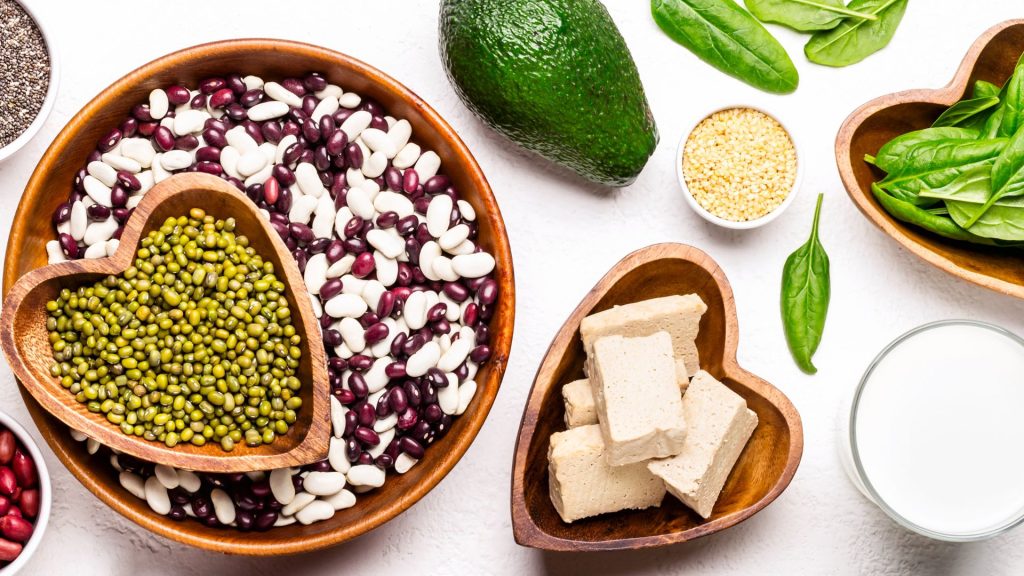Top 10 Vegan Sources of Calcium

Introduction
As you know calcium is closely related to strong bones and teeth. The insistent nagging of our mothers to drink milk in our childhood has a permanent place in our memory. But many individuals are lactose intolerant and milk being the easily available option for calcium does not do any good. So we have taken the initiative to dive into the world of plant-based nutrition and disclose the top ten vegan sources of calcium. As more people adopt a vegan lifestyle it’s essential to ensure we meet our nutritional essentials without compromising on essential minerals like calcium.
In this blog, we will explore ten plant-based sources of calcium that are both nutritious and delectable. We will delve into the nutritional profiles of various foods and reveal how to incorporate them into your diet. Whether you’re a dedicated vegan, exploring plant-based options, or simply looking for other calcium sources, this blog post is for you to read.
Avertisement
The Benefits of Plant-Based Calcium Sources
Before we dive into the vegan sources of calcium, we need to know the benefits of these calcium sources. We have categorized them as nutritional advantages and sustainable ethical considerations for opting for plant-based sources rather than regular sources of calcium.
Nutritional advantages of plant-based options
Unlike Omni sources, plant-based calcium sources are packaged with other essential nutrients, such as fiber, vitamins, minerals, and antioxidants. These nutrients work together synergistically to sustain overall health and well-being. Dairy products are high in saturated fat but Plant-based calcium sources lower in saturated fat, promoting heart health and lowering the risk of cardiovascular diseases.
Plant-based calcium sources are free from cholesterol and hormones, unlike animal-based foods. This is advantageous for those looking to maintain healthy cholesterol levels and avoid hormone-related health issues. Moreover, plant-based calcium sources have an alkalizing effect on the body. Consuming alkaline-forming foods helps balance the body’s pH levels. This leads to promoting optimal cellular function and reducing the risk of chronic diseases associated with acidity.
Sustainability and ethical considerations
Using Plant-based calcium sources have a lower environmental footprint compared to animal-based sources. Animal agriculture caters to greenhouse gas emissions, deforestation, and water pollution. By choosing plant-based options, you can contribute to a more sustainable and eco-friendly food system. Not only that, plant-based calcium sources allow you to make a positive impact on animal welfare. As human beings, our health should not be a factor in confinement, stress, and cruelty to animals. By preferring plant-based options, you invest in a compassionate lifestyle that avoids contributing to animal suffering.
Plant-based calcium sources require fewer aids such as land, water, and feed as compared to animal-based sources. This conservation of resources helps relieve pressure on the planet’s ecosystems and encourages the efficient use of limited resources. As the population continues to grow, the demand for food increases. Plant-based calcium sources offer a more sustainable solution to feed the increasing population. By moving towards plant-based options, we can assure that more people have access to nutritious food without wasting resources.
Avertisement
Top 10 Vegan Sources of Calcium
Here are the top 10 vegan sources of calcium:
1. Leafy Green Vegetables: Leafy greens like kale, collard greens, and spinach are ideal calcium sources, with around 100-250 mg of calcium per cooked cup.
2. Fortified Plant Milk: Many plant-based milk options, such as almond, soy, and oat milk, are fortified with calcium, delivering approximately 200-300 mg of calcium per cup.
3. Tofu and Tempeh: These soy-based products offer a good amount of calcium, with tofu containing about 200-400 mg per half cup and tempeh delivering approximately 100-200 mg per half cup.
4. Seeds and Nuts: Sesame seeds, chia seeds, almonds, and Brazil nuts are rich in calcium, with sesame seeds having around 1000-1200 mg of calcium per 100 grams, while almonds and Brazil nuts offer around 200-300 mg per 100 grams.
5. Legumes: Beans, lentils, and chickpeas contribute to calcium intake, with values ranging from 50-150 mg of calcium per cooked cup, relying on the type.
6. Whole Grains: Calcium can also be found in whole grains like amaranth, quinoa, and oats, delivering around 30-100 mg per cooked cup, depending on the grain.
7. Plant-Based Yogurts: Certain brands of plant-based yogurts are fortified with calcium and can offer about 150-300 mg of calcium per serving.
8. Algae and Seaweeds: Edible seaweeds like kelp and wakame, as well as algae such as spirulina and nori, contain differing amounts of calcium, with values generally ranging from 50-150 mg per 100 grams.
9. Calcium-Fortified Tofu Products: Some tofu products are fortified with extra calcium, delivering around 200-400 mg of calcium per half cup, relying on the brand and variety.
10. Citrus Fruits and Juices: While not as high in calcium as other sources, citrus fruits like oranges and grapefruits, as well as their juices, contribute small amounts of calcium, usually around 30-50 mg per serving.
Avertisement
Tips for Optimizing Calcium Absorption
Vitamin D plays a crucial role in calcium absorption. To optimize calcium absorption, ensure adequate vitamin D intake by exposing your skin to sunlight or incorporating vitamin D-rich foods like fortified plant-based milk, mushrooms, and fortified cereals into your diet.
Magnesium aids in calcium absorption and utilization in the body. Include magnesium-rich foods such as nuts, seeds, legumes, and leafy green vegetables alongside calcium sources to enhance absorption and maximize the benefits of both minerals.
Certain substances can hinder calcium absorption, so it’s essential to minimize their consumption. These include excessive caffeine, high-sodium foods, and phytic acid-rich foods like whole grains and legumes. Consuming these foods in moderation or pairing them with calcium-rich foods can help mitigate their inhibitory effects.
Avertisement
Conclusion
In conclusion, adopting a plant-based diet doesn’t mean that you are compromising on calcium intake. By exploring the vegan sources of calcium, you can meet your nutritive needs while enjoying the benefits of a sympathetic and sustainable lifestyle.
By choosing plant-based calcium sources, you not only benefit from their nutritional advantages but also donate to sustainability, animal welfare, and global food security. So, go ahead and explore the diverse range of plant-based options available to include them in your daily diet. Nurture your body, protect the planet, and support a benevolent lifestyle all while meeting your calcium requirements and boosting your overall health.




Responses